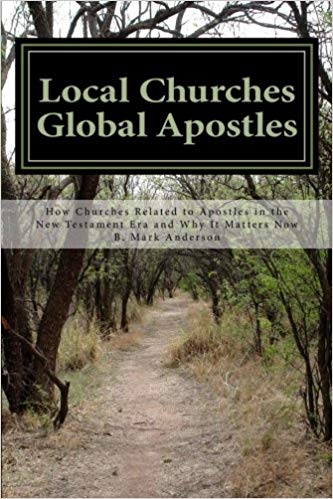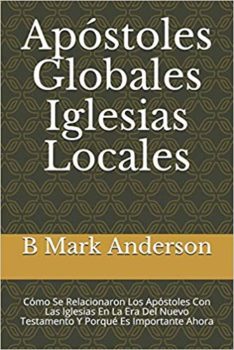What are the Marks of Apostleship?
How can we tell a true apostle from the counterfeit? Good question. A conference recently convened to hash out these questions. No definitive answers emerged, so let’s go to the New Testament to find direction.
Marks of Apostleship Summarized
Marks of apostleship are summarized in this definition: An apostle is a Godly Christian leader called and supernaturally gifted by God to open new spiritual and geographical territory for the gospel, lay foundations, equip believers, and serve as catalyst and coordinator for churches and ministries.
For another look at the marks of apostleship, click here.
The Bible teaches by both precept and example. I’m focusing on examples in this article–sometimes we concentrate on text alone and forget about examples.
Men Who Demonstrated Marks of Apostleship in the Bible
Check these examples of men who opened new territory, either spiritually or geographically. Pioneering a work in virgin territory characterized the Biblical men who bore the marks of apostleship. This aspect of true apostleship seems often overlooked by those trying to understand apostolic ministry today.
Andrew “found first his own brother Simon and said to him, ‘We have found the Messiah’ and ‘he brought him to Jesus.’” (John 1:41, 42) Andrew opened new gospel territory within his own family. Both of these guys eventually became disciples and apostles of Christ.
Philip found Nathanael and said to him, “We have found Him of whom Moses in the Law and also the Prophets wrote, Jesus of Nazareth, the son of Joseph” (John 1:45). Philip overcame Nathaniel’s original objection by inviting him to “Come and see” Jesus. Jesus’ words of revelation about Nathaniel’s nature sufficed to make a believer out of him. Both he and Philip later became apostles of Jesus.
When it comes to opening new territory, Barnabas shines as the example par excellence. Often overlooked as he traveled in the shadow of St. Paul, Barnabas actually recruited Paul and served as his mentor. Paul basically followed in the patterns Barnabas worked out.
Multiple examples of Barnabas’ leadership emerge as we investigate the pages of the New Testament. At Antioch he laid foundations into the first missionary church. He established multiple leadership in the local church there(Acts 13:1). He set a pattern of churches helping churches as he carried relief money from Antioch to Jerusalem.
Barnabas, under the leading of the Holy Spirit, took Paul with him. He led the tour and together they opened the island of Cyprus and portions of modern day Turkey to the gospel.
Barnabas set the pattern and example of ministers and missionaries being sent out and returning to the local church (Acts 13 and 14).
The best known example of any apostle who opened new territory is, of course, Paul. God used this man to evangelize much of the Middle East including modern day western Turkey, Greece, and Kosovo. Paul’s greatest legacy, however, lay in theology, even more than in the geographical expansion of Christianity. Paul did not originate the gospel of grace but he developed it more than any other New Testament writer. Without Paul and the letter to Romans and Galatians, our understanding of the gospel would be truncated and shallow.
Timothy and Silas worked with Paul to open up new gospel territory and expand the Kingdom of God.
Titus is not listed as an apostle, yet his work in Crete signifies he was doing the work of an apostle by laying foundations in the church there. He exhibited the marks of apostleship even though he is not named as an apostle anywhere in the pages of the New Testament.
The apostle James was the epitome of a New Testament pastor. He is the first and only example of a local church pastor in the Bible and is forever God’s stalwart pattern for what a pastor is and does.
Peter and John traveled on a mission to Samaria. There they ministered the baptism of the Holy Spirit to a group of believers who were lacking this experience. By imparting the Holy Spirit they became examples of apostles who solved major problems in a local church.
In all the examples of apostles where we have adequate information, the apostle opened up new spiritual or geographical areas for God.
Contemporary Men who Demonstrate the Marks of Apostleship by Opening New Territory
Some modern day examples of men who exhibit the marks of apostleship include Earl Kellum. This apostle pioneered over two hundred churches in Mexico. He also was either the first or one of the first to drop gospel portions from airplanes over remote villages in order to evangelize the people. I once flew with Air Mail from God Mission and dropped gospels of John over a village near Cuatla, Mexico. (I say once flew because the plane crashed after a few passes over the town. I survived, but the plane was put out of commission.)
Paul Anderson, former Director of International Lutheran Renewal Services in St. Paul, Minnesota saw needs and met them. Among other enterprises he originated the Alliance of Renewal Churches (ARC) and began the Master’s Institute (MI), an innovative seminary for training ministers.
Just because a person pioneers a work or starts a program does not by itself indicate he or she is an apostle. All Christians need to open new territory and expand the kingdom of God in some way. Apostles are leaders of expansion. Wherever we find a true apostle we find a pioneer. There’s more to the apostolic calling than pioeering new works. To learn more about this God-appointed ministry, go to What is an apostle?







I’ve been exploring for a bit for any high quality articles or blog posts on this kind of area . Exploring in Yahoo I at last stumbled upon this site. Reading this info So i’m happy to convey that I’ve a very good uncanny feeling I discovered just what I needed. I most certainly will make certain to do not forget this web site and give it a glance on a constant basis.